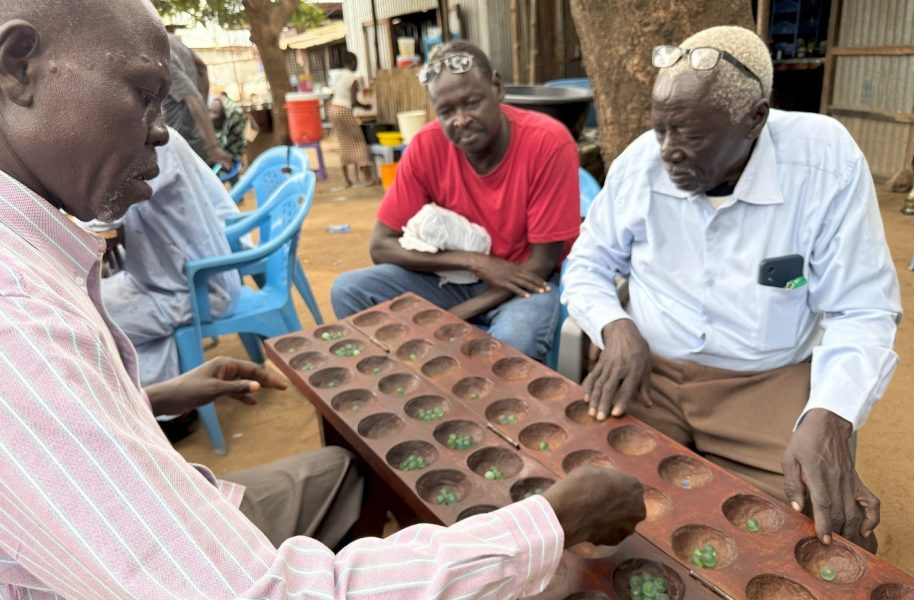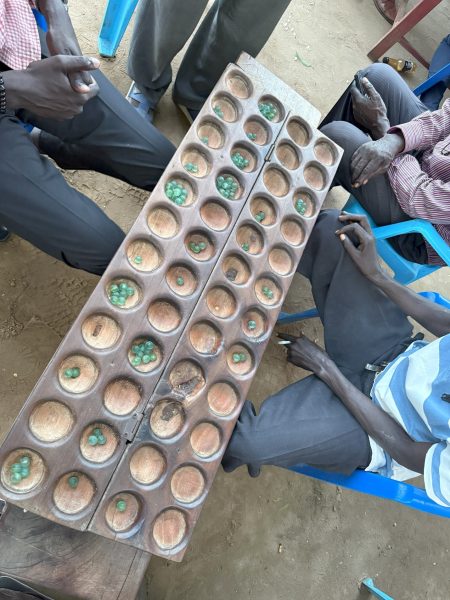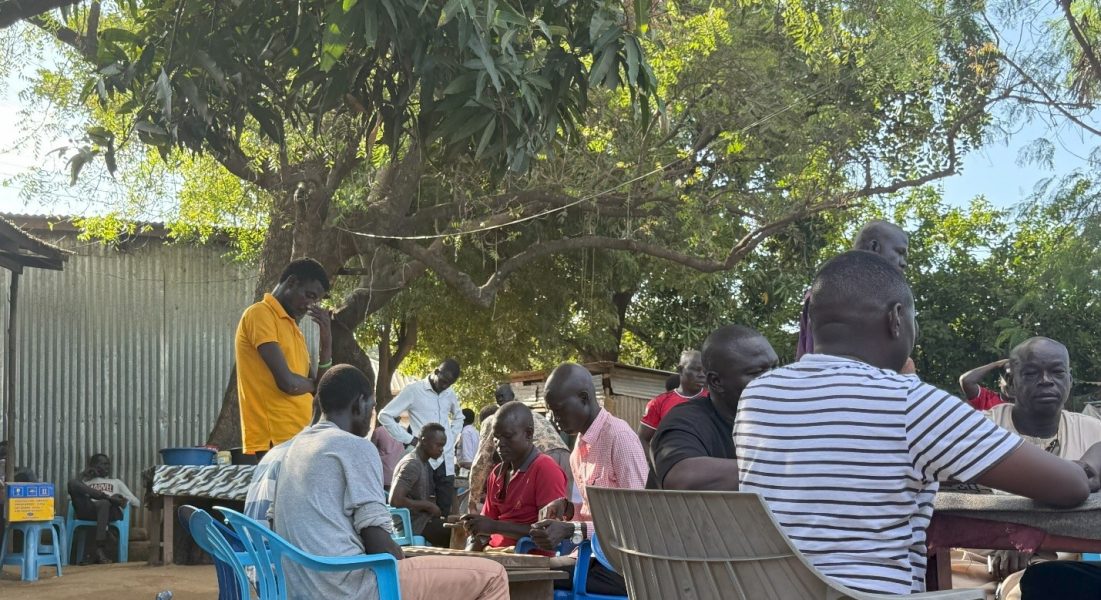
Under the shade of an old tamarind tree in Juba’s St. Kizito neighborhood, a circle of elders leans over a wooden board, pebbles clicking softly as they move from hole to hole. Laughter and silence trade places in pace yet this is no idle pastime.
This is Mancala, locally known as ‘Mungola’ a centuries-old game that has trained minds, built friendships, and passed down wisdom across generations in South Sudan.
It’s not football. It’s not wrestling. Here, strategy is sport, and Mancala is its original arena.
To the untrained eye, moving seeds across a carved board may seem simple, almost thoughtful. But beneath the surface lies a contest of strategy, memory, and foresight, a mental duel that has taught generations to think critically, plan ahead, and respect the patience of time.
“Mancala is a game that trains the mind like an athlete trains the body,” says 72-year-old Hassen Mari, a lifelong player.
“I learned it from my grandfathers, and since then, I have loved the game,” he added.
Played across villages and towns from Equatoria to Upper Nile and Bahr el Ghazal Mancala has long been more than entertainment. It is a classroom without walls, teaching children patience, cooperation, and tactical thinking, while offering adults a space to debate, connect, and transmit oral traditions.
“It is not just about winning; it refreshes the mind and connects us to who we are,” Mari says.
“It’s about planning, anticipating your opponent’s move, and staying calm under pressure. Our grandfathers taught us to solve problems on the board and in life.”
From markets to homesteads, the sound of clicking stones continues to echo a soft percussion of tradition in a rapidly changing society.
Even as smartphones, television, and urban life crowd modern spaces, Mancala endures as a living link between past and present, a symbol of quiet wisdom in a noisy age.
“For me, the game is a reflection of life. We learn patience, strategy, and to think before we act,” says James Nyireth, a retired historian, as he leans over the board each day at 77.
“I once played football, using my body. Here, we use our minds. That’s why I can still sit with the youth and win.”
Mancala was South Sudan’s first mind sport long before the age of screens.
Believed to have traveled along the Nile Valley over centuries, Mancala connects present-day players to the tactical genius of their ancestors.
Today, it thrives in village squares, and city corners not as a relic, but as a living sport of intelligence and heritage, unaltered by technology.
Among younger players is Kenyi Gwor, an engineering student at the University of Juba:
“It’s unique. You can play Ludo or cards on your phone, but not Mancala. Even if someone makes an app, it will never feel like sitting outside, moving the stones yourself.”
“The lesson I get from Mancala is to think, plan, and be patient. That’s how the mind stays sharp.”

Bridging Generations
Mancala is more than competition; it is a bridge between generations. Elders and youth sit side by side, testing intellects, exchanging stories, and sustaining cultural memory.
Local tournaments draw small crowds, but as many players note, the real victory is not on the board, it is the mental endurance and unity the game inspires.
“Mancala teaches respect, patience, and wisdom. It is a game of the mind, and the mind is our most valuable treasure,” Gwor says.
In a world where leisure often means passive entertainment, Mancala proves that games can do more than amuse; they shape character, preserve culture, and sharpen the mind.
Mr. Edward Settimo Yugu, Director General at South Sudan’s Ministry of Youth and Sports, describes Mancala as one of the country’s most unique and culturally rooted games.
“Yes, the game is beautiful; it is one of the great sports passed down from our grandfathers. It trains the mind, but it can be time-consuming if not played in moderation. What’s special is that it stands on its own, I haven’t seen it on phones or computers. Perhaps developers find it challenging to adapt.”
He added that Mancala could be introduced into school sports programs in the future, preserving culture while fostering strategic thinking among students.
The game uses a board with four rows of eight-twelves holes, each filled with two seeds. Players take turns redistributing seeds with careful calculation, transforming each move into a test of foresight and mathematical skill.
According to the Pitt Rivers Museum, the word “Mancala” comes from the Arabic naqala, meaning “to move.”
Traditionally carved from wood, boards are also made from clay, stone, metal, or even scooped into the ground. Though versions vary across Africa and Asia, African Mancala is known for its complexity and rich cultural symbolism, often linked to education, rituals, and ceremonies.
Mancala is a traditional sport that refuses to fade.
Even as modern life shifts attention away from traditional play, ‘Mungola’ remains resilient.
It continues to shape minds and build community, a reminder that some of life’s greatest lessons do not come from screens or classrooms, but from the quiet rhythm of hands moving seeds beneath a tree.


